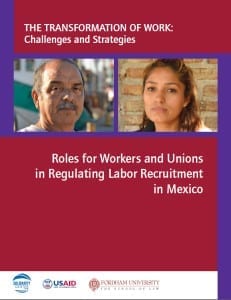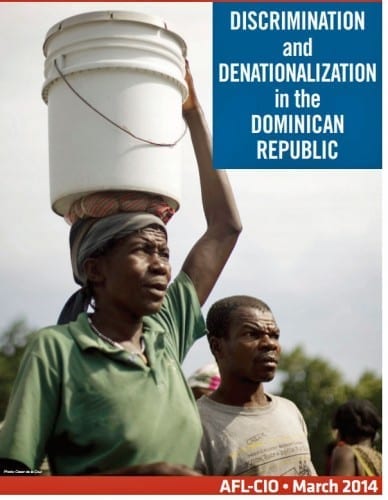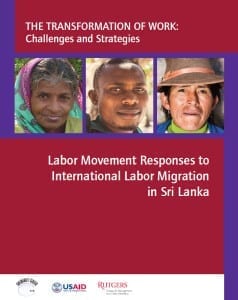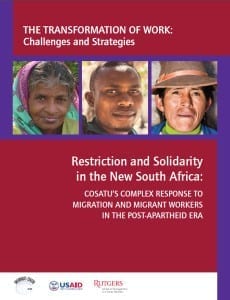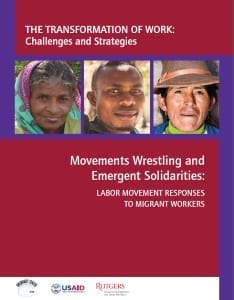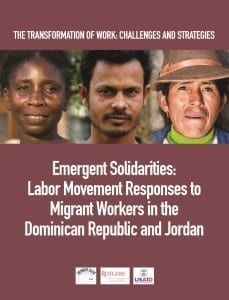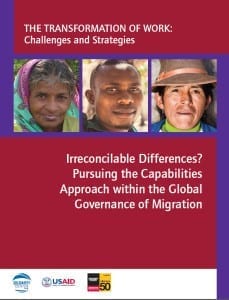 Irreconciliable Differences? Pursuing the Capabilities Approach within the Global Governance of Migration (2014)
Irreconciliable Differences? Pursuing the Capabilities Approach within the Global Governance of Migration (2014)
This report on global migration argues that the recognition and protection of the rights of migrant workers, their families and their communities must be the focal point of any application of the capabilities approach now accepted within the international development community.
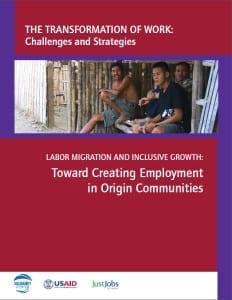 Labor Migration and Inclusive Growth: Toward Creating Employment in Origin Communities (2015)
Labor Migration and Inclusive Growth: Toward Creating Employment in Origin Communities (2015)
This paper investigates the intersection of labor migration and the inclusive growth agenda, and seeks to recommend policy interventions so governments of origin countries can limit the threats labor migration poses to sustainable and rights-based development, and expand labor migration’s positive impacts by making migrant workers agents in promoting and realizing an inclusive growth agenda in their origin communities.
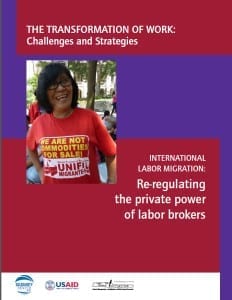 International Labor Migration: Re-regulating the Private Power of Labor Brokers
International Labor Migration: Re-regulating the Private Power of Labor Brokers
In this review of initiatives to regulate labor brokers, the authors find that state and civil society efforts to address migrant worker exploitation point to potential new policies, most effectively led by state-backed regulatory frameworks.
Roles for Workers and Unions in Regulating Labor Recruitment in Mexico
Fordham University law professor Jennifer Gordon examines the roles of guest workers as organizers, monitors and policy-setters in supply chain initiatives and other efforts to address labor recruitment violations.
Discrimination and Denationalization in the Dominican Republic
A September 2013 Dominican court ruling taking away citizenship from many migrants means they will be excluded from any activity that requires official identification, including working in the formal sector, attending school, opening a bank account, accessing health services, getting married, traveling or voting.
Labor Movement Responses to International Labor Migration in Sri Lanka
This report looks at the political and economic context within which Sri Lankan unions have attempted to respond to migrant workers, unions’ role in the key governance and policy mechanisms that pertain to labor migration, and the way the Sri Lankan labor movement responded to international migrant workers.
Restriction and Solidarity in the New South Africa
This report look at South African labor’s complicated engagement with migrant workers by examining the migration policy debate, labor’s response to the xenophobic attacks of 2008 and two organizing campaign in the agricultural sector. It sheds light on how labor migration and hostility toward immigrants are intertwined with the state’s embrace of neo-liberal economic policy and with growing labor precariousness.
Movements Wrestling and Emergent Solidarities
This report synthesizes a two-year project. Part one consisted of desk and case study research conducted by telephone in Jordan and the Dominican Republic looking into cases where unions had made significant changes in their approach to migrant worker organizing. Part two involved field studies in South Africa and Sri Lanka and provides analysis of strategies and results.
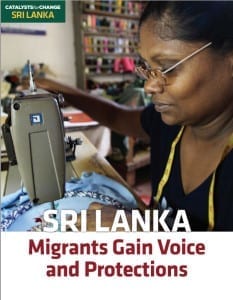 Sri Lanka: Migrants Gain Voice and Protections
Sri Lanka: Migrants Gain Voice and Protections
The Migrant Services Center, a Solidarity Center partner, is assisting migrant workers and their families in Sri Lanka while championing structural change through legislative and governmental processes, and offers a model for other labor and worker rights organizations.
Emergent Solidarities: Labor Movement Resposnes to Migrant Workers in the Dominican Republic and Jordan
This report explores examples of unions making significant change in their approaches to migrant worker organizing and how the Solidarity Center has played a role in shifting union thinking about migrant workers and supporting union engagement and activities.

